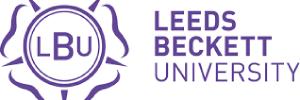
The Study Needs Assessment is an essential part of the Disabled Student Allowance (DSA) process. Your funding body will advise you when your DSA application has been approved and will advise you to book a study needs assessment.
Background
The Study Needs Assessment is an essential part of the Disabled Students’ Allowance (DSA) process. Once your application has been approved you will receive a DSA1 letter advising you to book a Study Needs Assessment.
The Study Needs Assessment tends to be a structured but fairly informal one-to-one discussion with a Study Needs Assessor which will usually last between 2 and 3 hours. You won’t be tested but may have to complete a short questionnaire prior to the assessment. This will help the Assessor, who will have specific questions they need to ask to make sure you get the academic support you need.
The Study Needs Assessment is an opportunity to talk to somebody in depth about:
- The positive and negative aspects of studying in the past
- The positive and negative aspects of any support you have received in the past at home/school/college
- Any worries you might have about going to university
- What you are excited about and what you will do well at
You will also learn a bit more about the kind of academic support that is available to you – many students really don’t know much about this and are amazed to find out what is out there and how it may work for them.
How could this affect me?
If you have applied for DSA, the Study Needs Assessment is an essential part of the process.
Recommendations will vary from person to person depending on;
- Your course
- How your autism affects you
- The impact of autism on your studies
During the assessment, you will have the opportunity to ask questions and discuss strategies and equipment that may benefit your study.
All recommendations must be considered in relation to the DSA regulations and guidance.
What to do next?
Use the link in your DSA1 letter to find a needs Assessment Centre and book an appointment.
Practical tips
- Find your local Assessment Centre on the Government website.
- Contact the Disability Advice team if you would like to have your assessment at Access Portsmouth which is based on the University of Portsmouth campus.
- Let the needs assessment centre know about your access and learning needs to enable you to fully participate in the assessment.
- It is important you feel confident in expressing your views so that you get the most out of this process and that the recommendations made are appropriate.
Questions to think about
Before you meet with the Study Needs Assessment assessor it may be helpful to think about the following:
- How do you feel about making notes in lectures, where most of what is said does not end up on a whiteboard or the PowerPoint slides? It is also not possible to write down every word that is said.
- Would being able to record lectures help you?
- How do you make and organise your notes when reading or revising?
- Do you enjoy going to new places?
- Are you able to find new places easily?
- Does it help to have someone with you when you go somewhere for the first time?
- What are you most excited about when it comes to your course?
- What would you like to know more about or might need support to do before you get excited?
- How do you feel about group work?
- How do you manage your free time?
- Are you always on time for appointments without help from someone else?
- Do you like to be in busy, lively places or quiet places?
- How do you find out about new topics?
- Do you find it easy to organise your ideas and structure them in writing?
- Do you find academic writing easy? How about spelling, punctuation and grammar?
- Would you like somebody to talk to who has a good understanding of both autism and university?
- Do you have any other conditions like dyslexia, dyspraxia or ADHD?
- Does it help you to read information from the internet if you can print it out?
- Who supported you with your work at school and what did they do that was helpful?
- What helps you when you’re stressed? Music, exercise, art, reading, playing games, talking to others?
- Did you use any tools like visual schedules, social stories, coloured overlays, coloured paper or alarms to help you at school or college?
- How do you feel about talking to people about your autism, including tutors and other students?
Additional links and information
You can contact the Disability Advice team by email on disabilityadvice@port.ac.uk or by phone at 023 9284 3462.
Arranging reasonable adjustments | Autism toolkit
This toolkit is an adaptation of the Autism&Uni project led by Marc Fabri from Leeds Beckett University, under license CC BY 4.0. The original Autism&Uni project was funded with support from the European Commission with partners in the UK, Finland, the Netherlands, Poland and Spain. For more information about this project please visit the Autism&Uni website.








